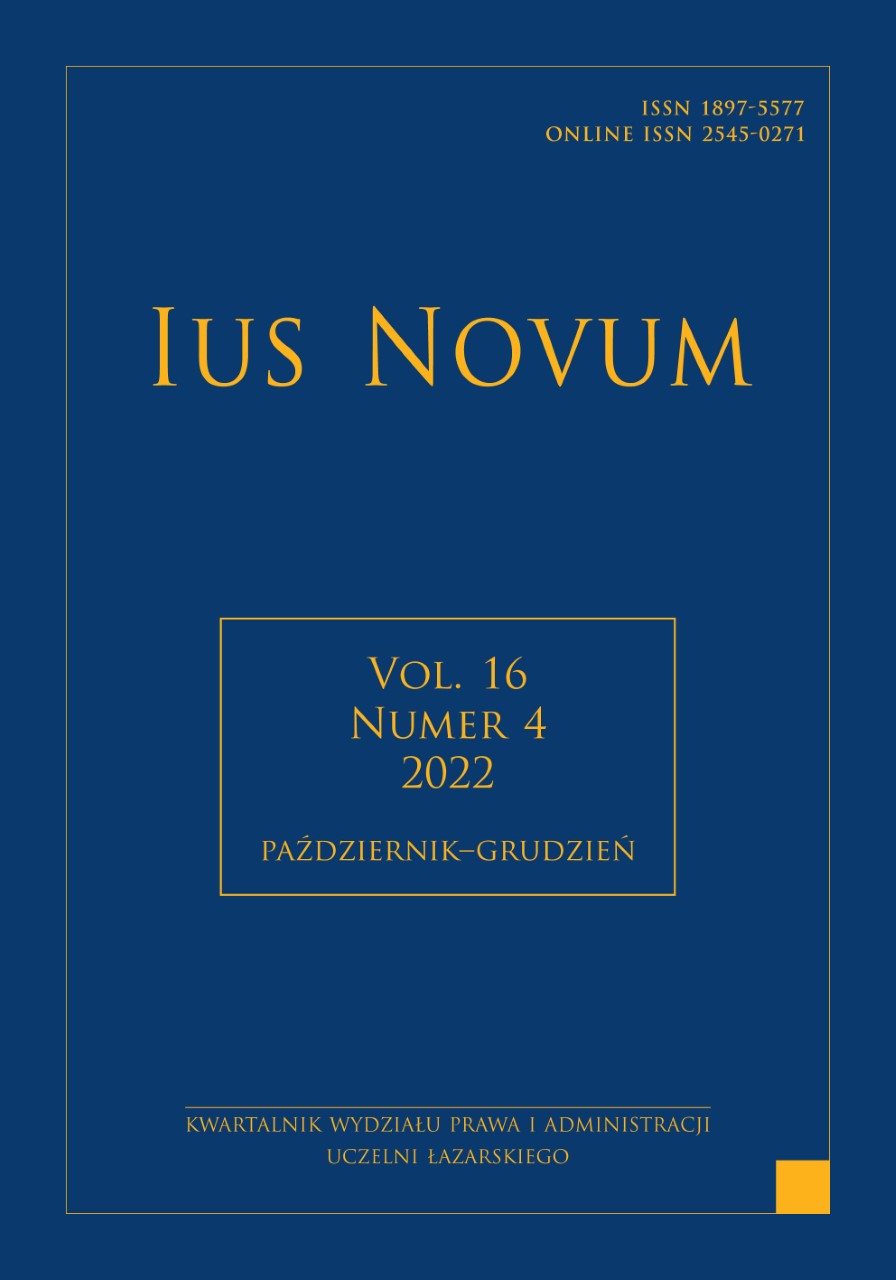Lecznicze środki zabezpieczające w Kodeksie karnym skarbowym
Medicinal Precautionary Measures in The Fiscal Penal Code
Author(s): Marta Roma TużnikSubject(s): Law, Constitution, Jurisprudence
Published by: Oficyna Wydawnicza Uczelni Łazarskiego
Keywords: therapy, addiction therapy; stay in a psychiatric institution; tax crimes
Summary/Abstract: The article is a review and is devoted to the issue of therapeutic security measures in the Fiscal Penal Code, i.e. therapy, addiction therapy and stay in a psychiatric institution. The measures in question are fully regulated in the provisions of the Penal Code, in Articles 93b–93g recited under article 20 § 2 of the Fiscal Penal Code on the basis of fiscal penal law. The above provisions concern the general premises and rules of adjudication, subjective adjudication criteria, the time of adjudication and the use of therapeutic precautionary measures, and the obligations of the perpetrator against whom therapy, addiction therapy or stay in a psychiatric institution was ordered, which corresponds to the structure of the publication. due to the lack of an autonomous regulation in the provisions of the Fiscal Penal Code with regard to the discussed safeguards, the problem of the appropriate application of the above-mentioned provisions of the Criminal Code in fiscal penal law and the actual suitability of therapeutic safeguards in this branch of law arises. The aim of the article is therefore to analyze articles 93b–93g of the Criminal Code and attempt to assess whether the adoption of these provisions on the ground of fiscal penal law has been successful, and to verify the research hypothesis that therapy, addiction therapy and stay in a psychiatric institution play a significant role in fiscal penal law. The subject of the analysis are legal regulations and statements of the doctrine. The article contains considerations concerning the normative and dogmatic sphere, and not the sphere of judicial application of the law. However, the study is not devoid of references to practice, but is limited only to the statements of the judicature. The research is national in nature. when presenting the topic, the authors used the analysis of legal texts, dogmatic analysis and the analysis of the supreme Court and appellate courts. Therefore, the title issue was presented in a normative, dogmatic and partly practical aspect.
Journal: Ius Novum
- Issue Year: 16/2022
- Issue No: 4
- Page Range: 23-34
- Page Count: 12
- Language: Polish

